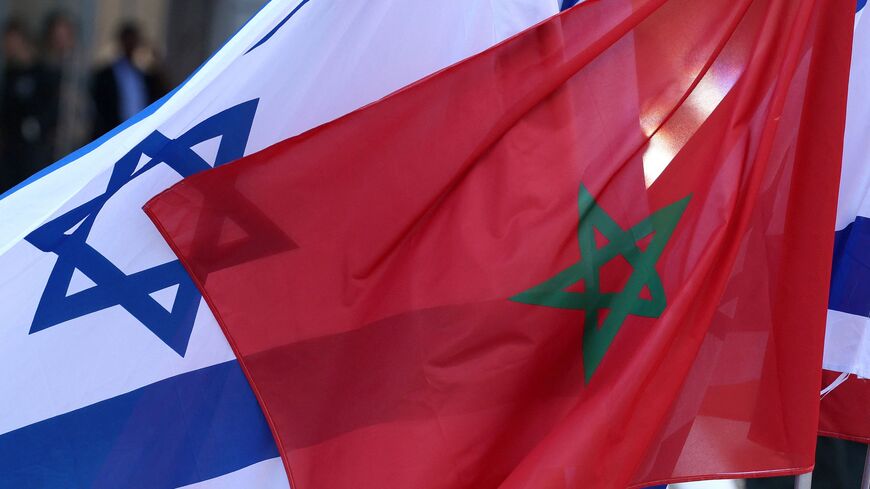Israel has recognized Morocco's sovereignty over Western Sahara, the Moroccan Ministry of Foreign Affairs said on Monday, in what constitutes a major victory for Rabat in its pursuit of outside recognition for the contested area.
The ministry said on Twitter that Israel has decided to "recognize the sovereignty of Morocco over the lands of Western Sahara."
Western Sahara was a Spanish colony until the mid-1970s. A 1991 cease-fire agreement saw Rabat lay claim to 80% of Western Sahara, with the rest being held by the Algiers-backed Polisario movement.
🔴توصل صاحب الجلالة الملك محمد السادس، نصره الله، برسالة من الوزير الأول لدولة إسرائيل فخامة السيد بنيامين نتنياهو. ومن خلال هذه الرسالة، رفع الوزير الأول الإسرائيلي إلى العلم السامي لصاحب الجلالة، نصره الله، قرار دولة إسرائيل "الاعتراف بسيادة المغرب على أراضي الصحراء الغربية". pic.twitter.com/Ji1Su1Ti7M
— الدبلوماسية المغربية 🇲🇦 (@MarocDiplo_AR) July 17, 2023
Algeria has opposed its neighbor laying claim to Western Sahara and has supported its independence from Morocco. While Morocco has offered some limited autonomy, it has affirmed that the territory must remain under its sovereignty. The Polisario movement, on the other hand, demands an independence referendum.
The move follows Morocco and Israel agreeing to establish full diplomatic relations in 2020 as part of the US-brokered Abraham Accords. At the time, the United States agreed to recognize Western Sahara as Moroccan territory as part of the normalization agreement.
Israel and Morocco have multiplied diplomatic contacts in recent months. Israel’s national security adviser Tzachi Hanegbi visited Morocco in June where he met Moroccan Foreign Minister Nasser Bourita. Reports in Israeli media indicated after the visit that Israel was considering recognizing the Moroccan sovereignty over Western Sahara.
The recognition also follows Morocco's cancelation last month of its plans to host the Negev Forum, the framework spearheaded by the United States to promote regional integration. The United States, Israel, Morocco, the United Arab Emirates and other Arab states were due to participate in the June meeting, but Rabat backed off at the time in response to Israel’s plan to expand illegal settlements in the West Bank.
David Schenker, a senior fellow at the Washington Institute for Near East Policy, said it was “inevitable” that Israel would ultimately recognize Western Sahara after establishing relations with Morocco in 2020.
“Morocco is looking forward to more countries recognizing their sovereignty,” Schenker told Al-Monitor. “This is both productive for the bilateral relationship and something that Morocco values greatly.”
Schenker, who served in the State Department when the United States recognized Morocco’s claim to Western Sahara, added that the move is in line with Israel’s efforts to “expand ties” with Arab states. Western Sahara is a “potential locale” for an Israeli consulate, according to him.
It remains to be seen whether there will be a backlash in the region to Israel’s move, including from Morocco’s main rival on Western Sahara, Algeria. Schenker pointed out that Algeria already has a clear stance on the Israeli-Palestinian conflict, and that there is not much the North African country can do in response to the recognition.
“Algeria is very firmly in the Palestinian camp. It is unclear what Algeria would do [beyond that support],” he said.
Monday's recognition breaks with Israel's traditional view on the issue. As a rule, because of the Israeli-Palestinian conflict, Israel avoids taking positions on territorial disputes in other parts of the world. Also, the US recognition in 2020 generated Algeria’s anger, pushing it to block Israel’s bid to join as an observer in the African Union.
Under international law, however, the territory is still considered to be illegally occupied by Morocco.
Rina Bassist and Jack Dutton contributed to this report.








